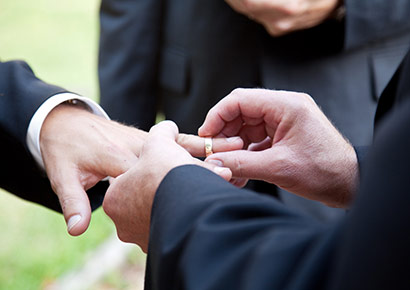A victory still? Cuba drops plans to include marriage equality in new constitution
 Protests by bigots and religious conservatives have led Cuba’s government to remove explicit support for same-sex marriage from its new constitution. But this may not be as bad as it sounds.
Protests by bigots and religious conservatives have led Cuba’s government to remove explicit support for same-sex marriage from its new constitution. But this may not be as bad as it sounds.
Marriage is defined as only being possible between “a man and a woman” in Cuba’s current constitution and in its Family Code.
The country, however, is in the midst of amending the constitution, and had proposed that it would instead state that marriage is a “union between two people … with absolutely equal rights and obligations.”
Cuba’s president, Miguel Diaz-Canel, previously stated that he is in favour of legalising same-sex marriage in the constitution.
On Tuesday, however, the government announced that the inclusive text would be completely removed from the draft constitution. The constitutional commission explained that this had been done “as a way of respecting all opinions.”
It’s understood that as a compromise, the draft constitution will no longer define which parties enter into marriage at all and that this definition will be left to the Family Code. Lawmakers will then have the opportunity in future to legalise same-sex marriage by changing or amending the law, which they could not do with the current constitution.
Gay blogger Francisco Rodriguez, known as Paquito de Cuba, had a positive outlook on the decision. He said that not defining marriage in the constitution was still “a huge step forward” which will leave the “door open to that future egalitarian marriage that we want to achieve.”
Mariela Castro, niece of Fidel Castro and longtime LGBTQ activist, remained defiant. “We have not yielded, nor will we yield to conservative and backward blackmail that is politically opposed to the emancipating project that is the Cuban revolution,” she wrote.
The draft constitution will be put to the public to approve in a popular referendum on February 24, 2019.
Cuba has a dark history when it comes to LGBTQ rights. In the 1960s, LGBTQ people were persecuted after the revolution, including being forced into labour camps to “correct” their “deviations”. Homosexuality was finally decriminalised in 1979 and LGBTQ people are now protected from discrimination in employment and in the provision of services.
Many of the advances in LGBTQ rights in Cuba, including the move to legalise same-sex marriage, have been championed by Mariela Castro. In 2005, she proposed allowing transgender people to receive free sex reassignment surgery and to change their legal gender, which became law in 2008.
Fidel Castro in 2010 expressed regret for the post-revolution crackdown on LGBTQ people while he was in power, calling it “a great injustice, great injustice!”
Leave a Reply